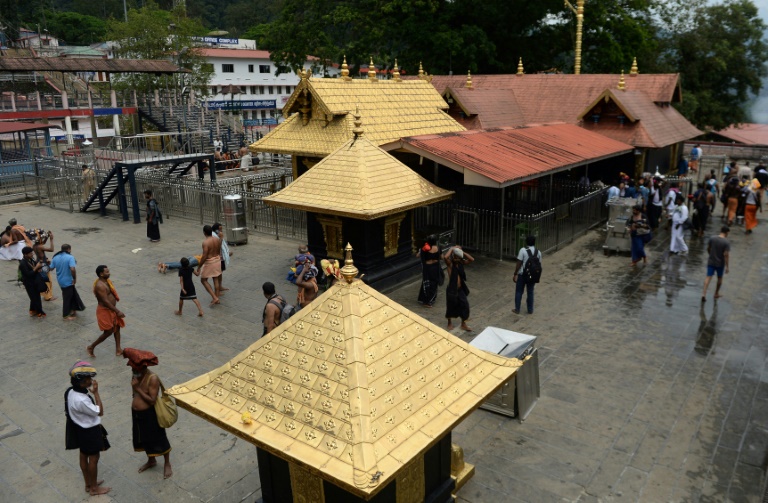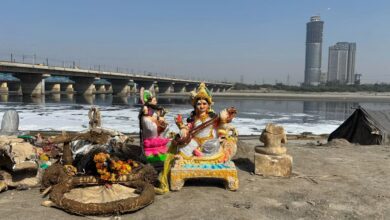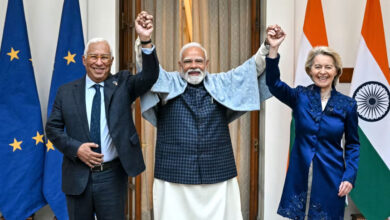
The high priest of one of India’s holiest temples carried out a “purification ritual” on Wednesday after two women defied Hindu traditionalists to sneak inside for the first time since a landmark court ruling.
The Supreme Court in September overturned a decades-old ban on women of menstruating age — deemed as those between 10 and 50 — setting foot inside the gold-plated Sabarimala temple.
Until now Hindu traditionalists — backed by Prime Minister Narendra Modi’s Bharatiya Janata Party (BJP) — have prevented attempts by women to access the hilltop site in the southern state of Kerala, with some hardliners turning violent.
But in a surprise pre-dawn operation on Wednesday heralded by activists but opposed by conservative devotees, police enabled two women to penetrate the hilltop temple and then leave again undetected, officials confirmed.
Video images showed the women, Kanaka Durga and Bindu, who has only one name, wearing black tunics with their heads bowed as they rushed in.
“We did not enter the shrine by climbing the 18 holy steps but went through the staff gate,” one of the women, who both remain under police guard, later told reporters.
Kerala’s Chief Minister Pinarayi Vijayan said: “It is a fact that the women entered the shrine. Police are bound to offer protection to anyone wanting to worship at the shrine.”
Progressive
September’s verdict was the latest progressive ruling from the court, with judges also overturning bans on gay sex and adultery last year — posing a challenge to Modi’s traditionalist BJP.
In rare comments regarding the Sabarimala temple on Tuesday, Modi — running for a second term in elections later this year — appeared to support the ban, saying the matter was related to tradition.
“There are some temples which have their own traditions, where men can’t go. And men don’t go,” Modi told Indian media.
The restriction on woman at Sabarimala, situated on top of a 3,000-foot (915-metre) hill in a tiger reserve that takes hours to climb, reflects a belief — not exclusive to Hinduism — that menstruating women are impure.
Traditionalists argue also that the temple deity, Ayyappa, was celibate.
Repeated efforts by women to enter the temple since September have been angrily rebuffed by Hindu devotees with police having to step in to escort them away to safety.
In October, devotees clashed with police in a town near the temple leading to the arrest of more than 2,000 people.
On Tuesday, tens of thousands of women formed a human chain across Kerala to back the demand for access to the temple. Media reports said some were heckled by right-wing activists.
The Supreme Court is to start hearing a legal challenge to its ruling on January 22.
‘Cheap tactics’
As soon as news of Wednesday’s breach spread, the temple head priest ordered the shrine closed for the purification ritual. It reopened after around an hour.
Modi’s government did not immediately react, but activists celebrated.
“Watching the visuals of them making their way into the shrine makes me cry in joy — how long it has taken for us to claim space, to write our way into history,” wrote feminist author Meena Kandasamy on Twitter.
But dozens of women in Thiruvananthapuram, the state capital, shouted slogans calling for state premier Vijayan’s resignation.
Local BJP leaders have said they would observe a two-day protest across Kerala against the breach. The state is ruled by an alliance of left-wing parties.
Rahul Easwar, a right-wing activist in Kerala, condemned the state authorities for helping organise the secret operation.
“Such cheap tactics are unbecoming of a state government,” he said on Twitter.
Women are still barred from a handful of Hindu temples in India. The entry of women at Sabarimala was taboo for generations and formalized by the Kerala High Court in 1991.




